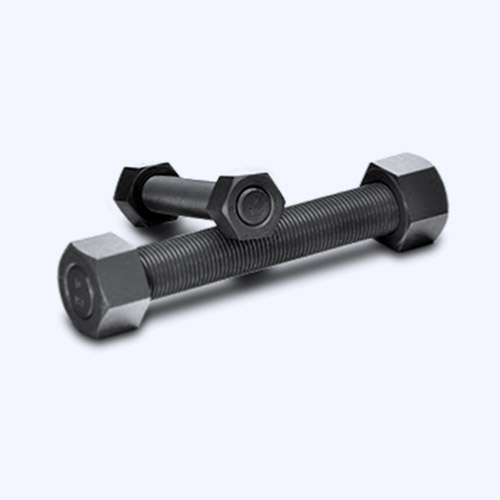dec . 10, 2024 02:59 Back to list
Understanding the Benefits and Uses of Structural Flat Washers in Construction
The Importance of Structural Flat Washers in Engineering Applications
In the world of engineering, the seemingly simple components often play a crucial role in ensuring the integrity and functionality of various structures and systems. One such critical component is the structural flat washer. Though often overlooked, flat washers serve multiple essential purposes in fastening assemblies, enhancing the performance and longevity of structures across various industries.
What is a Structural Flat Washer?
A structural flat washer is a disc-shaped piece of metal or plastic that is usually placed between a bolt or screw head and the surface of the material being fastened. The primary function of these washers is to distribute the load of the fastener over a larger area. This action helps to reduce the pressure on the surface beneath the fastener, minimizing the risk of material deformation, damage, or failure.
Material and Design
Typically manufactured from materials such as steel, stainless steel, aluminum, or plastic, structural flat washers can be designed to suit specific applications
. For example, steel washers are favored for their strength and durability, making them suitable for high-load applications. Stainless steel washers, on the other hand, are ideal for environments where corrosion resistance is paramount.Flat washers are available in various sizes and thicknesses, enabling engineers to select the appropriate washer for the specific load requirements of their project. Additionally, specialized designs exist, such as those with an increased outer diameter for enhanced load distribution or those with a rubberized coating to offer better grip and prevent slippage.
Key Benefits of Using Structural Flat Washers
1. Load Distribution One of the most critical functions of flat washers is their ability to spread the load exerted by nuts and bolts. By providing a wider bearing surface, flat washers reduce the risk of damaging the materials being fastened. This load distribution is particularly vital in applications involving softer materials, such as wood and plastic, where too much pressure could lead to cracking or deformation.
structural flat washer

2. Prevention of Loosening In dynamic applications where vibration and movement are common—such as in automotive and aviation industries—washers can help to prevent fasteners from loosening over time. By increasing surface contact and friction, flat washers help maintain tension and stability in structures.
3. Corrosion Resistance Many structural applications occur in harsh environments where exposure to moisture, salt, and other corrosive substances is inevitable. Using corrosion-resistant flat washers can enhance the lifespan of joints and connections, ultimately leading to lower maintenance costs and improved safety.
4. Improved Appearance In applications where aesthetics matter, such as architectural projects or visible mechanical assemblies, flat washers can provide a cleaner and more finished look. They are available in various finishes, making it easier to match them with other components.
Applications of Structural Flat Washers
The applications of structural flat washers are extensive across numerous industries. They are widely used in
- Construction In residential and commercial buildings, flat washers assist in securing beams, columns, and other structural elements. - Automotive Essential for securing components throughout the vehicle, flat washers help maintain assembly integrity in the face of vibration and stress. - Aerospace In aircraft construction, where precision and safety are paramount, structural flat washers are used to ensure reliable fastening solutions amidst extreme conditions. - Manufacturing Across various manufacturing processes, flat washers facilitate assembly and improve the longevity of machines and equipment.
Conclusion
Though they may not garner the same level of attention as bolts and screws, structural flat washers are vital to the success of countless engineering projects. Their role in load distribution, prevention of loosening, corrosion resistance, and appearance enhancement cannot be overstated. As industries continue to evolve and demand stronger, more reliable materials and assemblies, the importance of these simple yet effective components will undoubtedly remain significant. Understanding and utilizing structural flat washers effectively can lead to improved safety, performance, and durability in engineering applications. Investing in high-quality washers tailored for specific needs is not just a best practice but a critical factor in the overall success of any construction or manufacturing venture.
-
The Ubiquitous Reach of DIN934 in Application Realms
NewsMay.16,2025
-
Exploring Different Bolt Types
NewsMay.16,2025
-
Cracking the Code of Sleeve Anchor Mastery
NewsMay.16,2025
-
Clamp Design Principles,Types and Innovations
NewsMay.16,2025
-
Artistry Inspired by the Humble Anchor Bolt
NewsMay.16,2025
-
A Deep Dive into Screw Types
NewsMay.16,2025


